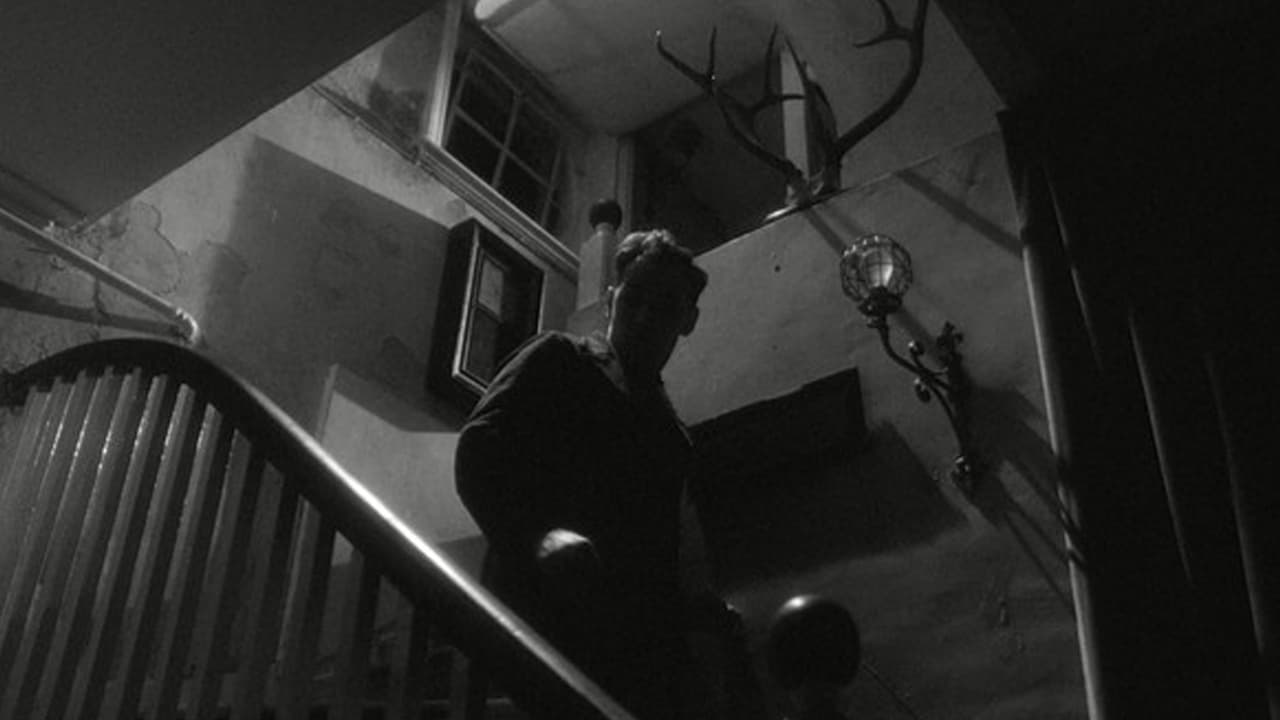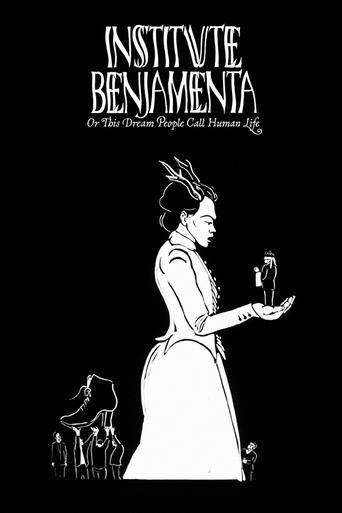

It is fairly rare that moving pictures are made with real artistic value in mind and even more rare when the endeavor pays off. Well, The Quay brothers' Institute Benjamenta is one such picture. At first sight it might appear a little too pretentious with an abounding array of hidden symbolism of a strange and antique meaning but then again, the basic thread of the picture is as old as humanity itself, pointing back to the ancestral roots of what makes us human: to love and to loose. It is remarkable the technique and the rendering of the camera in the Quay brothers' masterpiece. You cannot but help wondering if the images themselves are not centuries old and, in a sense, that is exactly the aim of the picture, to make itself look old and timeless, at the same time. I urge anyone who is really looking for that special feeling films give us, far from commercialism and hollywoodia, to see this movie. Sure, most of you will find it a little bit hard to watch but if you give it patience and let the mood of the picture fill you from within your imagination then I think this will be a rewarding cinematic experience.
... View MoreA quiet and softly spoken man arrives at a ghostly building to enrol for the servants class taught there. He rings the doorbell and is greeted by a monkey's face through the small hole in the door. The man's name is Jakob. He enters and meets one of the two owners (a brother and sister). The brother is unpleasant, and informs Jakob that there are no favourites here. Jakob goes into class to meet the other students. They all announce their names to him and then fall over. The lessons are presumptuous and iterative. They involve the men swaying from side to side and standing on one leg. They really are quite eccentric. The institute seems to be its own little world away from reality, with its low ceiling rooms. The sister soon has a strange fondness for Jakob. This is a very sombre film, but has a unique air to it. The pacing is pedestrian, but you stay with it. The acting is good, and the camerawork is meticulous and probing.
... View MoreIf this has a meaning beyond the one on the surface, which carries no conviction, it must be one of the classic horror films. But I can't see that it does. The authoritarian, sexually perverse world that it depicts seems the creation of someone who has never experienced oppression or obsession at first hand and so has nothing to say about it. The film is a totally artificial and hermetic work. On the other hand, its distance from reality allows its manufacturers to take as much time as they please to refine and distill its essence, as in a bottle. But what is it they're distilling? Whatever it is, it gives off a lovely scent. One exquisite shot follows another; the actors are perfectly cast. Alice Krige I suppose can be called a cult figure (I'm one of the cult), and in this film she has finally found the ideal environment. It's never uninteresting, never unattractive--but it should have been disturbing and it isn't. Some day I hope to find something inside it.
... View MoreInstitute Benjamenta is an oddity. Let me say that first, get it out of the way. Part of me hesitates from revealing here that it is one of my favourite films of all time because I know I'll make some people reading this mini-review approach it from the wrong angle. A film like this should never become required viewing. You should stumble across it at a repertory cinema somewhere or be beguiled by the video-box art showing the striking visage of Alice Krige as she paces before her blackboard, deerfoot staff in hand. You should find one evening that its the only thing that sounds interesting on TV, or peer at a still alongside a mention in your TV guide and wonder what on earth the picture is supposed to depict. Contained between main and end credits here is a world so visually ravishing and technically abstruse that you are only in the film while you are watching; the rules of the outside do not apply. You peer into the dreamy, foggy black-and-white and what you can't identify for certain your imagination fills out. These are the most special special effects because you wonder 'what' and 'why' by never 'how.' The Institute of the title is a school for servants, the lessons they are taught bizarre and repetitive to the point of making 'deja-vu' a permanent state of being. Is the repetition the point of it all or has the teacher lost the plot? If she has, how come we care? None of this is vaguely like real life. None of it, that is, bar the characters emotions. Or is the whole thing like real life, like Life with a capital 'L?' In the end does this sort of pondering make for a good movie? I won't answer that because I'm terribly biased. Remember the title and look it up sometime. It's the cinematic equivalent of a stunning old-fashioned magician's trick. A monochrome bouquet, a sad smile. There are images, scenes that may make the hairs on the back of your neck think they're a cornfield with a twister on the way. I tried to warn you as quietly as I could.
... View More